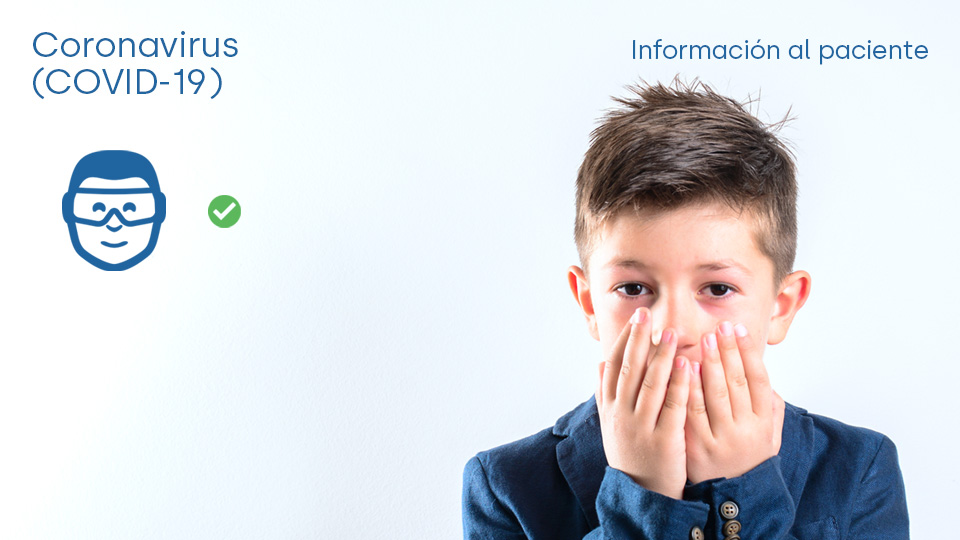All about the skin around the eyes and “drooping” eyelids
04/04/2025

31/03/2020
The World Health Organization (WHO) has warned that the main route of transmission of the coronavirus (COVID-19) is through droplets produced when an infected person coughs or sneezes, that remain in the air or on surfaces for some time. If a healthy person inspires them or touches an infected surface, and then with the hands touches the nose, mouth, or eyes then that person becomes also infected.
It has also been scientifically documented that the coronavirus can also be present in the ocular mucosa, not only in the respiratory secretions, and can produce moderate conjunctivitis in less than 1% of the cases studied. In fact, all physicians and healthcare personnel caring for patients in this pandemic should wear protective closed glasses to prevent exposure of the ocular mucosa.
In this environment, ophthalmologists from the Barraquer Ophthalmology Center warn that while the use of gloves and masks to prevent COVID-19 infections has become widespread among the general population, but the eyes remain an unprotected point of contact on many occasions. Therefore, Dr. Juan Álvarez de Toledo, ophthalmologist and medical deputy director of the Center, recalls the measures that the general population must take at the eye level: “We must at all times wear safety goggles (or, failing that, prescription glasses or sunglasses) If we go out to buy at the supermarket, they should protect well and cover as much as possible against an explosion to the virus, ”he explains.
“At home, if we live with a sick patient, we must also protect our eyes adequately when we bring the food or carry out other tasks in the room in which he or she is isolated. If you inadvertently touch your eyes, it is advisable to wash thoroughly with saline solution or artificial tears to try to eliminate the presence of viruses as much as possible. And if there are signs and symptoms of conjunctivitis after possible contact, it is important to be alert to the risks of respiratory symptoms appearing later. This conjunctivitis does not have a specific treatment so it should not be medicated except with frequent washes with saline solution" recalls Dr. Álvarez de Toledo.
In addition to the general recommendations for hand hygiene and avoiding touching the face, this specialist recommends that you should avoid wearing contact lenses since we must touch the conjunctival mucosa when putting them on and removing them, and, “if their use is essential, carry out a strict hand cleaning before and after putting them on or taking them off”, warns the specialist. In addition, Dr. Álvarez de Toledo recommends the use of disposable contact lenses for daily use to reduce manipulation of the eyes.
All these measures aimed at self-protection and avoiding exposure to the virus are now absolutely necessary so that, together, we contain the spread of this terrible disease. And the care of the eyes, being a possible entrance door, forces us to take maximum precautions of hygiene and eye protection.